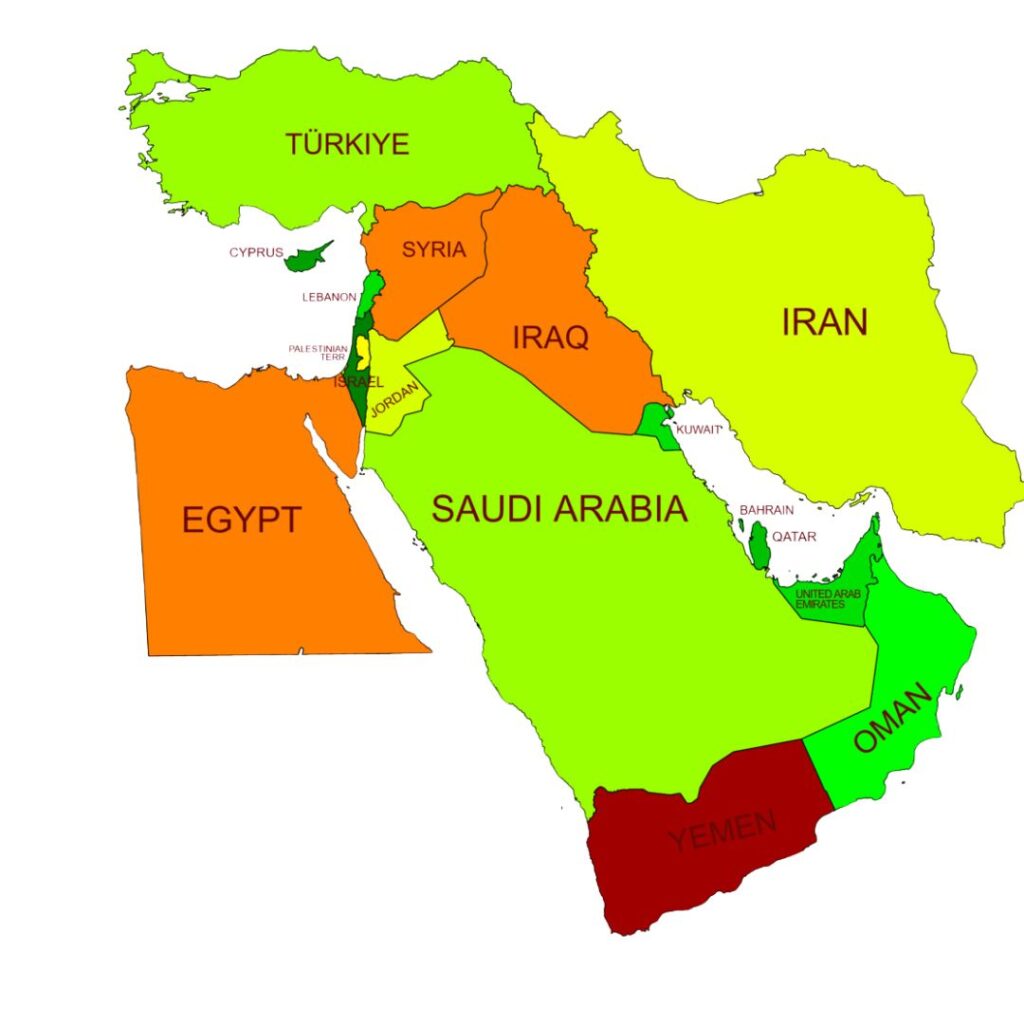Israel is Fighting a Multifront War with No Clear Vision of the Endgame
By: Ghassan Rubeiz / Arab America Contributing Writer

Israel is now fighting a war on four main fronts: with Hamas in Gaza, with Palestinian activists in the West Bank, with Hezbollah in Lebanon, and with the Revolutionary Guards in Iran.
Tel Aviv seems to be making significant tactical gains on all fronts, especially in south Lebanon. But the final outcome is unclear. Israel is rejecting calls for ceasefires and diplomatic solutions. More troubling is the fact that Tel Aviv has no plans for what happens after the war. Meanwhile, Washington’s decision to send new air defense systems to Israel, manned by US troops, hints that the US is getting more involved.
Five factors underlie Israel’s lack of strategic political vision: Prime Minister Netanyahu’s political future, Israel’s internal ideological divide, a violent extremist settler movement, a divisive regional peace plan, and a troubled and troubling partnership between Washington and Tel Aviv.
Consider first Netanyahu’s personal issues. He is afraid to end the war to avoid being ousted, both for his failure to protect Israel from the October 7 attacks and on account of his looming corruption charges. His current plan is for his army to reoccupy Gaza and Lebanon and annex the West Bank.
The lack of plans for “the day after” reflects deep-seated ambiguity in how Israelis see themselves. While secular, democratic Israelis want to live within secure and recognized political borders, the fundamentalists want nothing less than the ethnic cleansing of Palestinians. This fissure within Israeli society is preventing a consensus on how the fighting should end and what should happen afterward, which in turn leaves Israel vulnerable to mission creep.
A violent, messianic settler movement has hijacked Israeli society, effectively turning the country into an apartheid state. It is hard to imagine a two-state solution, with eight hundred thousand Israelis living illegally in the West Bank and East Jerusalem. It is hard to think of Palestine and Palestinian rights when you believe that God has promised you the entire land between the River and the Sea.
Ignoring the future of Palestinians, Israel, in recent years, normalized relations with two Arab Gulf states, Sudan and Morocco, and hopes to add Saudi Arabia to this “regional” peace plan. But Saudi Arabia has refused to play along unless Israel offers a “path” to Palestinian independence. Israel is not even willing to countenance such talk. In such circumstances of war and dehumanization, it is an illusion that Israel can forge real peace with a cluster of insecure Arab states, even though some are rich and close to Washington. At best, we are talking about a pacification scheme driven by economic incentives.
The United States is certainly not helping the Israelis think clearly and strategically either. President Biden claims to want Israel to avoid the mistakes the US made in Iraq and Afghanistan, but Israel has ignored his advice. We are left to conclude that Biden’s words are either irrelevant or insincere. While pretending to do the opposite, the United States has been encouraging Israel to continue its aggression and occupation in Gaza, the West Bank, and Lebanon.
Now it has reinforced Israel’s air-defense system and given it the green light to attack Iran’s military sites. By describing American support for Israel as “ironclad’, the White House is admitting its complicity in whatever Israel is doing in the Middle East, be it ethnic cleansing, genocide, or illegal land annexation. In practical terms, Washington and Tel Aviv are marching into war in unison; their willingness to resolve complicated political problems through diplomacy has ebbed to near zero.
Without a plan for “the day after”, Israel is likely to expand the war and the occupation of new territories. A divided Israel, ruled by an unscrupulous leader, destabilized by a militant settlement movement, deluded by an unworkable regional peace plan, and spoiled by a short-sighted US administration, could be heading into deep trouble.
Ghassan Rubeiz is the former Middle East Secretary of the World Council of Churches. Earlier, he taught psychology and social work in his country of birth, Lebanon, and later in the United States, where he currently lives. For the past twenty years, he has contributed to political commentary and delivered occasional public talks on subjects related to peace, justice, and interfaith. You can reach him at rubeizg@gmail.com
The views and opinions expressed in this article are those of the author and do not necessarily reflect the position of Arab America. The reproduction of this article is permissible with proper credit to Arab America and the author.
Check out our Blog here!









